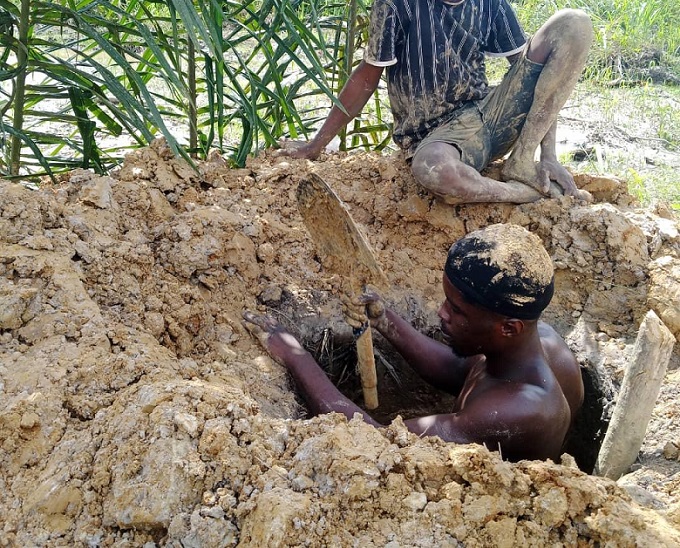
By Kofi Adu Domfeh
Ghana is currently witnessing the unprecedented destruction of her natural resources like never before in its history. In key mining districts, illegal miners – popularly known as galamseyers – are destroying forest and land resources in a way that raises questions about their ability to be good stewards of the resources bequeathed to the people.
These illegal miners, mostly young people, destroy these resources with careless abandon, ignoring sustainability concerns.
“Over the years the contribution of the youth to our development has been downplayed. This is partly as a result of the country’s own inability to meet the needs of the youth, especially in the areas of employment, inclusive development and access to socio-economic opportunities,” said a statement signed by Robert Tanti Ali, Executive Director of Centre for Social Impact Studies (CeSIS).
CeSIS is a research and advocacy non-governmental organisation committed to supporting communities impacted by the operations of mining.
In commemoration of International Youth Day (IYD), CeSIS calls on the government of Ghana to take steps to push for green mining in order to save the environment. The day recognizes the key contributions of the youth in national development and this year’s theme is: “Green Skills for Youth: Towards a Sustainable World”.
In order to achieve the Sustainable Development Goals, it is essential to equip young people with the green knowledge and skills they need to solve environmental issues. Initiatives spearheaded by young people are essential for accelerating progress toward a greener society.
According to CeSIS, this year’s theme for IYD gives Ghana an opportunity to begin to look at “greener” ways of mining, which remain the backbone of the economy.
“The rate at which the country is losing its forest resources leaves no one in doubt that in the next decade, Ghana will not have a single forest reserve unscathed from the menace of galamsey. When this happens, we end up imperiling the flora and fauna that sustain human life. There is therefore an urgent need for the state to take bold, realistic and decisive action to save our future. And this will mean supporting the youth with requisite knowledge, skills and technology to make a life for themselves,” said a statement.
Mining ‘green’ for sustainability
CeSIS believes that the state should take every step necessary to empower the youth who have a passion for small-scale mining to do so in a greener and more sustainable way in order to preserve the environment for the next generation, while raking in economic benefits.
The organization has called on the government to look at four critical areas:
1. Ban the use of harmful chemicals like mercury and cyanide in the mining industry as a whole, and in particular in small-scale mining. There are already some mercury-free machines like the “gold katcha”, introduced by Commodity Monitor that can be popularized by the regulatory agencies.
2. Introduce innovative ways of mining to small-scale miners. Innovation will ensure that miners are able to recover more of the gold, and further reduce negative environmental footprints as a result of mining. Miners who breach this ban should be punished according to law.
3. Update geological information and make this available to interested miners. This step is particularly necessary to prevent the “trial and error” method of mining where miners keep digging up land till they hit ore bodies, by which time they might have caused significant destruction
4. Promote land reclamation among small-scale miners. There are currently innovative ways of ensuring land reclamation, and that includes undertaking massive afforestation initiatives in mined out areas.










